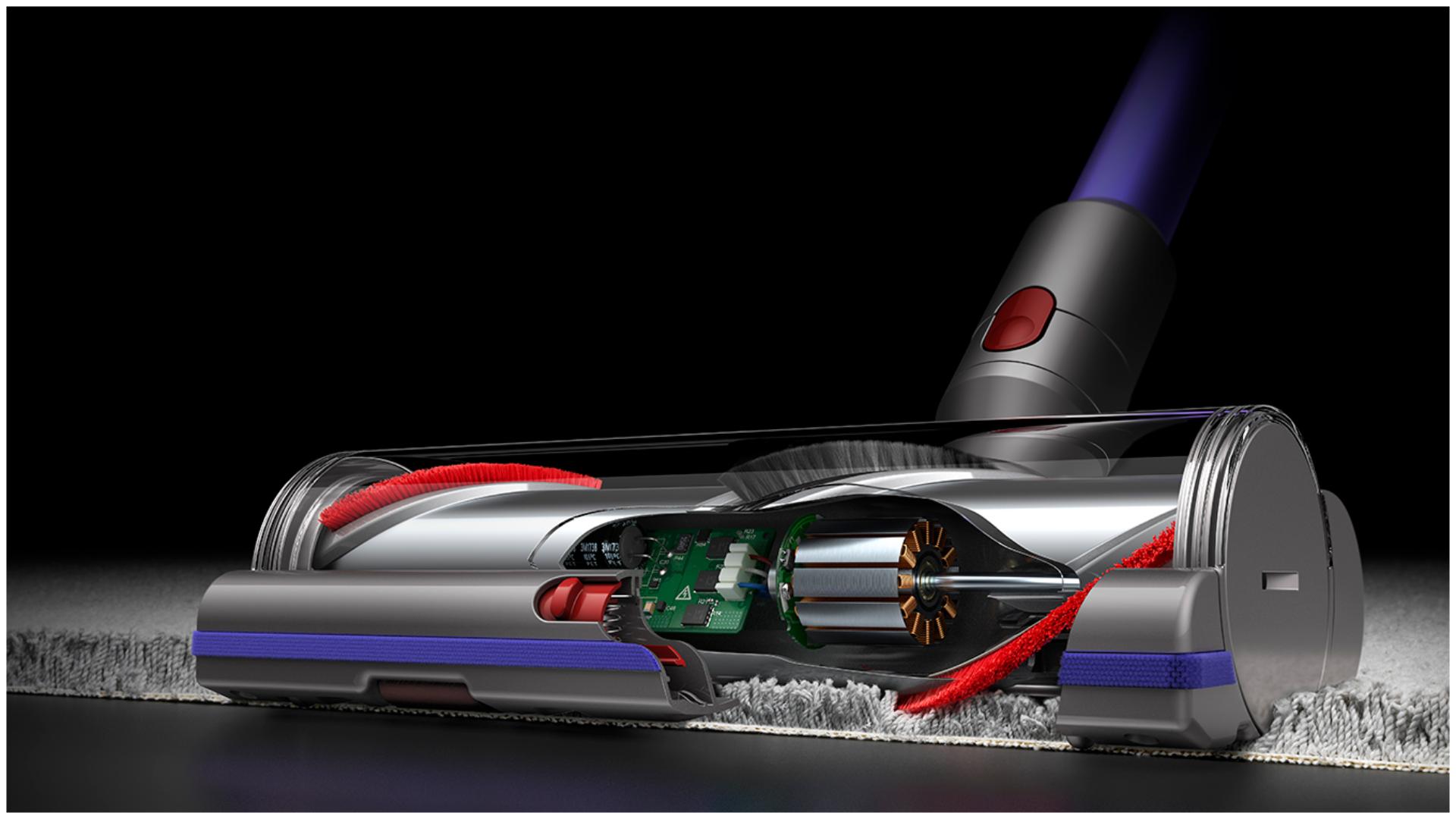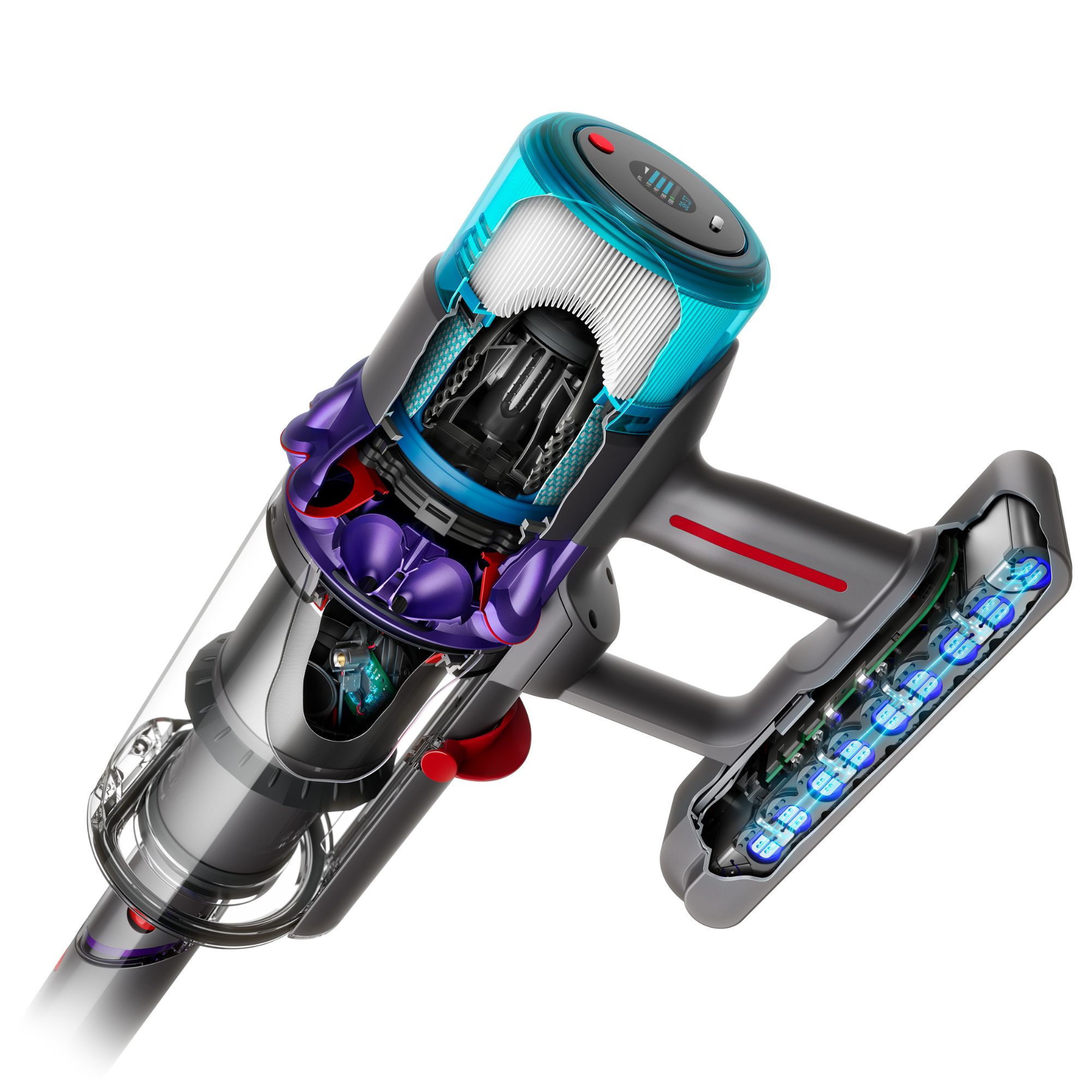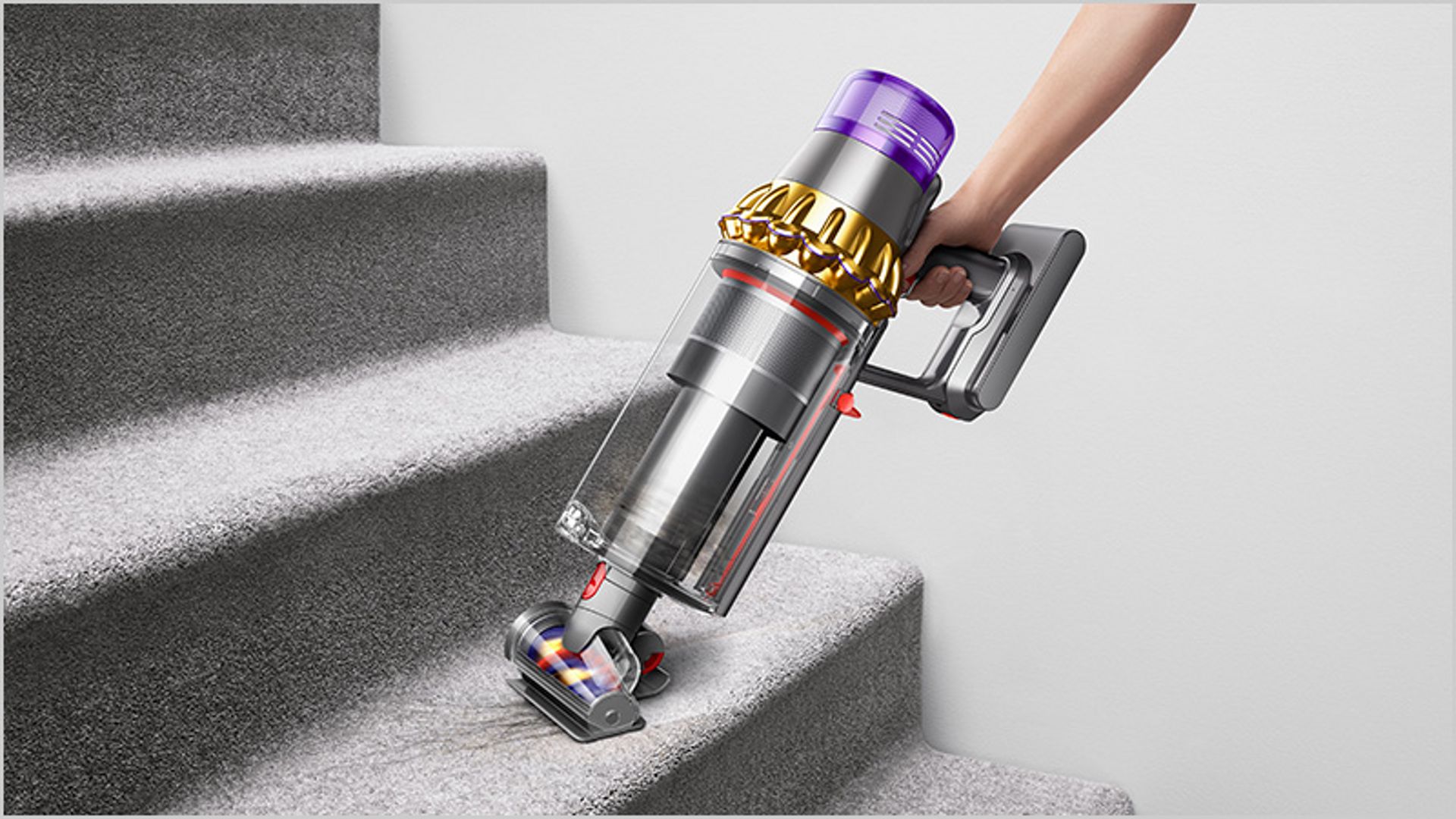Dyson Overheated - Understanding Your Appliance's Warmth
When you rely on appliances that help keep your home neat and your hair looking just right, like those from Dyson, it's pretty common to wonder about how they work and, you know, what to expect. You might have one of their vacuum cleaners, maybe a hair dryer, or perhaps even an air purifier, and sometimes, a question pops up in your mind about how warm these gadgets get during use. It's a natural thing to think about, really, especially with things that have motors or generate heat as part of their job.
So, you're using your Dyson, whether it's one of their cord-free machines that cleans high and low, or a styling tool for your hair, and you notice it's feeling a bit warm. Is that normal? Is it something to be concerned about? These are the sorts of thoughts that can cross your mind, particularly when you've invested in something you expect to perform well for a long time. We're here to chat about what that warmth might mean and how it relates to the everyday use of your Dyson items, from cleaning tools to those for personal care.
Understanding how your Dyson product operates, like how its powerful components work, can help ease any worries you might have if it starts to feel a little warm. After all, these are items designed for a specific purpose, whether it's picking up dirt from your floors or getting your hair styled just so. There's a lot of clever engineering inside, and sometimes, that means a bit of warmth is just part of the process, or it could be a signal for something else, you know, that might need a look.
- Christian Speakman
- Onesie Scene It Ends With Us
- White Calvin Klein Bra
- Car Crash Nail Salon Long Island
- Paris Parting Words
Table of Contents
- What Happens When Your Dyson Feels Too Warm?
- Looking at Dyson's Cleaning Gadgets
- Dyson's Hair Styling Tools and the Warmth Factor
- Air Treatment and Lighting - Can They Get Too Warm?
- What to Do if Your Dyson Gets Hotter Than Expected?
What Happens When Your Dyson Feels Too Warm?
When you're using something like a Dyson, which is known for its rather unique way of doing things, you might occasionally notice it feels a bit warm to the touch. This is, in some respects, quite common for many electronic items that work hard. Think about your phone after a long video call, or your laptop when you've been working on something big; they can get a little warm. With Dyson items, whether it’s a vacuum or a hair tool, there are powerful motors and airflows involved, and that can generate some heat as a normal part of their operation. So, a slight warmth isn't necessarily a bad thing, you know, right away.
The feeling of warmth can vary, of course, depending on what Dyson product you're using and how long it's been running. For instance, a Dyson hair dryer, which pushes out a lot of air at specific temperatures, is pretty much designed to produce heat. Similarly, a vacuum cleaner, especially one of those powerful cordless vacuum cleaners or upright vacuum models, works quite hard, sucking up debris and moving air around, which can make its motor casing feel a little warm. It's just a little bit of physics at play, really, as energy gets converted.
What we're talking about here is the difference between a normal operating temperature and something that might suggest a device is, you know, getting a bit too warm, or even what some might call truly overheated. A warm device is one thing; a device that feels uncomfortably hot, or perhaps even shuts itself off, is quite another. That's when you start to think, "Hmm, is that supposed to happen?" You want your Dyson to be dependable, so understanding these nuances is helpful, honestly, for peace of mind.
- Erin Mackey Movies And Tv Shows
- Step Brothers Song List
- Apple Cider Images
- How Tall Is Mia Thornton
- Adorable Black Lab Puppies
Is a Warm Dyson a Sign of Trouble?
Generally speaking, a little warmth from your Dyson isn't a red flag. Many of these items, like the powerful cordless vacuum cleaners or the hair stylers, have components that naturally generate heat as they do their job. The motors, the airflow systems, even the batteries in cord-free machines, all contribute to this. So, if your Dyson feels slightly warm after a period of use, that's often just it doing what it's built to do. It's kind of like a car engine getting warm after a drive; it's expected, you know, in a way.
However, if your Dyson feels very, very hot, or if it suddenly stops working with a noticeable warmth, then that might be something to pay closer attention to. This could happen if, for example, a vacuum cleaner's filter is really clogged, making the motor work harder than it should. Or, perhaps, if a hair dryer's air intake is blocked, it might struggle to cool itself properly. These situations can cause the device to get hotter than it's meant to, and that's when you might start to wonder if your Dyson is truly overheated, or at least getting there.
Most Dyson products are designed with safety features, so if they do get too warm, they might just shut down automatically to prevent any damage. This is a good thing, as a matter of fact, as it protects the appliance itself and, of course, you. So, if your Dyson stops unexpectedly and feels very warm, it could be a sign that this safety mechanism has kicked in. It's a gentle nudge, really, telling you to let it cool down or check for blockages, like your, you know, vacuum cleaner's airways.
Looking at Dyson's Cleaning Gadgets
Dyson offers a whole range of cleaning gadgets, from the upright vacuum models to the incredibly versatile cord-free machines that transform to clean high, low, and everywhere in between. These items are built to be powerful, pulling in dust and dirt with a lot of force. When you think about the amount of air they move and the motor spinning at high speeds, it's pretty clear that some heat will be generated. So, a Dyson vacuum cleaner, whether you shop at dyson.com or at Target, will typically get warm during a good cleaning session, and that's usually just fine.
The design of these vacuum cleaners, including handheld vacuum cleaners, is pretty clever, aiming to manage that heat. They have systems to move air through, which helps with cooling. But, if the airflow is restricted, say, if the bin is completely full, or if a filter hasn't been cleaned in a while, the motor might have to work harder. This extra effort can, you know, cause the device to get warmer than it usually would. It's a bit like trying to run with a heavy backpack; you just work up more of a sweat.
Considering the kind of use these cleaning tools get, often for extended periods, it's not unusual for them to feel quite warm. If you're doing a deep clean, moving from room to room, the motor in your Dyson vacuum cleaner is working continuously. This sustained effort can lead to a more noticeable warmth compared to just a quick clean-up. It's something to keep in mind, you know, when you're using it for longer stretches.
Keeping Your Vacuum from Feeling Too Hot
To help your Dyson vacuum cleaner avoid getting, you know, too hot, there are a few simple things you can do. One of the biggest helpers is making sure the filters are clean. Dyson vacuum cleaners rely on good airflow, and if the filters are clogged with fine dust, the motor has to push harder to pull air through. This extra strain can cause the motor to heat up more than it should. So, regularly cleaning or replacing your filters, as recommended, is a pretty good step.
Another thing to consider is emptying the dust bin often. When the bin gets really full, it can also restrict airflow, making the vacuum work harder. It's a bit like trying to breathe through a very small straw; it takes more effort. Keeping the bin clear helps the vacuum operate more efficiently, which in turn can help keep its operating temperature down. This is, you know, a simple habit that makes a difference.
Also, checking for blockages in the hose or brush bar is a good idea. Sometimes, hair or debris can get tangled or stuck, forcing the motor to strain. If your Dyson vacuum cleaner feels like it's struggling, and getting warmer than usual, a quick check for obstructions might be all it needs. It's just a way to help your powerful cordless vacuum cleaners keep doing their best work without getting, you know, what some might call overheated.
Dyson's Hair Styling Tools and the Warmth Factor
When we talk about Dyson's hair care items, like their hair dryers, hair straighteners, and hair stylers, warmth is pretty much part of their core function. These tools are designed to use controlled heat to shape and dry hair effectively. So, naturally, they're going to feel warm, sometimes even quite warm, during use. It's what they do, you know, to get your hair looking the way you want it. The heat is precisely managed to be effective yet gentle on your hair.
The engineering behind these hair tools is rather advanced, aiming to distribute heat evenly and prevent extreme hot spots. For example, a hair dryer pushes out a lot of air at a specific temperature, and the heating element inside will certainly get hot. Similarly, hair straighteners and hair stylers have heated plates or barrels that need to reach certain temperatures to work their magic. So, a warm casing or handle is a typical outcome of their operation. It's just, you know, part of the design.
However, if a hair tool feels excessively hot, or if it smells unusual, that could be a sign that something is amiss. This might happen if the air intake on a hair dryer gets blocked by dust or lint, preventing proper airflow and cooling. Or, perhaps, if a hair straightener is left on for a very long time without being used, though many have auto-shutoff features. It's worth being aware of these things, honestly, just to be on the safe side.
How Hair Dryers Might Get a Bit Too Warm
Hair dryers, especially those from Dyson, are built to move air very quickly and heat it up for drying. This process, by its very nature, generates heat. So, if your hair dryer feels warm after a session, that's completely normal. It's like a small engine working hard to create that powerful airflow you like. You know, it's doing its job.
But, if a hair dryer starts to feel more than just warm, perhaps even uncomfortably hot, or if it suddenly cuts out, there might be a reason. Often, this is related to the air intake filter getting clogged with dust or hair. When that happens, the fan motor has to work harder to pull air in, and the heating element might not be able to dissipate its heat as effectively. This can lead to the device getting, you know, a bit too warm, or what some might consider overheated.
Keeping the air intake filter clean on your Dyson hair dryer is a pretty straightforward way to help prevent it from getting excessively warm. Most Dyson hair dryers have a filter that's easy to access and clean, and doing this regularly helps maintain optimal airflow. This simple bit of care ensures the device can cool itself properly and continue to perform well, giving you, you know, that consistent styling experience.
Air Treatment and Lighting - Can They Get Too Warm?
Beyond cleaning and hair care, Dyson also makes air purifiers, humidifiers, and lighting. These items operate differently from vacuums or hair dryers, but they still involve electronics and sometimes motors, which can generate some warmth. An air purifier, for instance, has a motor that draws air through filters, and that motor will naturally produce a little heat during continuous operation. So, it's not unusual for the casing to feel slightly warm, you know, after being on for a while.
Humidifiers also involve internal components that work to disperse moisture into the air, and these can also create a modest amount of warmth. Similarly, Dyson lighting, while designed to be energy-efficient, still has electrical components that will get warm as they convert electricity into light. It's a pretty standard thing for electronic devices, really, to have some warmth as they operate. It's just part of how they function, you know, day to day.
The key here, as with other Dyson items, is the degree of warmth. A subtle, consistent warmth is generally expected. However, if any of these air treatment or lighting products feel surprisingly hot, or if there's any unusual smell, that would be a reason to, you know, check things out. They are built to run safely, but extreme heat is always a signal to investigate, just to be sure your Dyson isn't getting overheated in an unexpected way.
Why Your Air Purifier Could Feel a Little Warm
An air purifier from Dyson is constantly pulling air into its system, cleaning it, and then sending it back out. This involves a motor and a fan working steadily, often for many hours at a time. Any motor that runs for a long period will generate some heat. So, if you touch your Dyson air purifier and it feels a little warm, especially around where the motor is housed, that's a perfectly normal part of its operation. It's just, you know, doing its job of keeping your air clean.
The filters inside the air purifier also play a role. As air is pulled through them, there's a slight resistance, and the motor has to work to overcome that. Over time, if the filters become very saturated with pollutants, the motor might have to work a tiny bit harder, which could lead to a slightly increased warmth. This is why keeping an eye on filter replacement indicators is pretty helpful, as a matter of fact, for maintaining efficiency and managing any potential for warmth.
It's also worth noting that the environment where the air purifier is placed can affect its perceived warmth. If it's in a small, enclosed space, or if its air intake or exhaust vents are blocked, it might not be able to dissipate heat as effectively. Ensuring good airflow around the unit helps it operate at its intended temperature. So, placement matters, you know, in a way, for preventing your Dyson from feeling overly warm.
What to Do if Your Dyson Gets Hotter Than Expected?
If you're using any of your Dyson items, whether it's a vacuum cleaner, a hair dryer, or an air purifier, and it starts to feel hotter than you think it should, or if it even shuts down on its own, the first thing to do is simply turn it off and unplug it. Give it some time to cool down completely. This is a pretty important first step, you know, for safety and for the device itself. Don't try to force it to work if it's clearly struggling or feeling too hot.
Once it's cool, you can then do some basic checks. For vacuum cleaners, look for blockages in the hose, wand, or brush bar. Check the dust bin to make sure it's not overfull, and inspect the filters. Many Dyson vacuum cleaners, including the cord-free machines, have washable filters that need regular cleaning. For hair dryers and air purifiers, check their air intake vents for any dust or lint buildup. Sometimes, these simple steps are all that's needed to fix a Dyson that's getting, you know, too warm.
If you've done these checks and the problem persists, or if the device still feels unusually hot, then it might be time to look into the warranty information. Dyson products, when you shop at dyson.com, come with a warranty, and they also have customer support. Explaining what's happening can help them guide you through next steps. It's about making sure your Dyson continues to perform as it should, without getting, you know, unexpectedly overheated, and giving you peace of mind.
- Regions Tradition 2024
- Loose Fit Maxi Dress
- Scented Toilet Paper Holder
- Maine Lottery Winner
- Womens Levis 501 Vintage

Dyson V11™ Absolute vacuum cleaner for business

5 of the Best Vacuum Cleaners, Inc Robot, Cordless, Mops & More — The Latch

Dyson Outsize Complete cordless vacuum cleaner | Dyson New Zealand